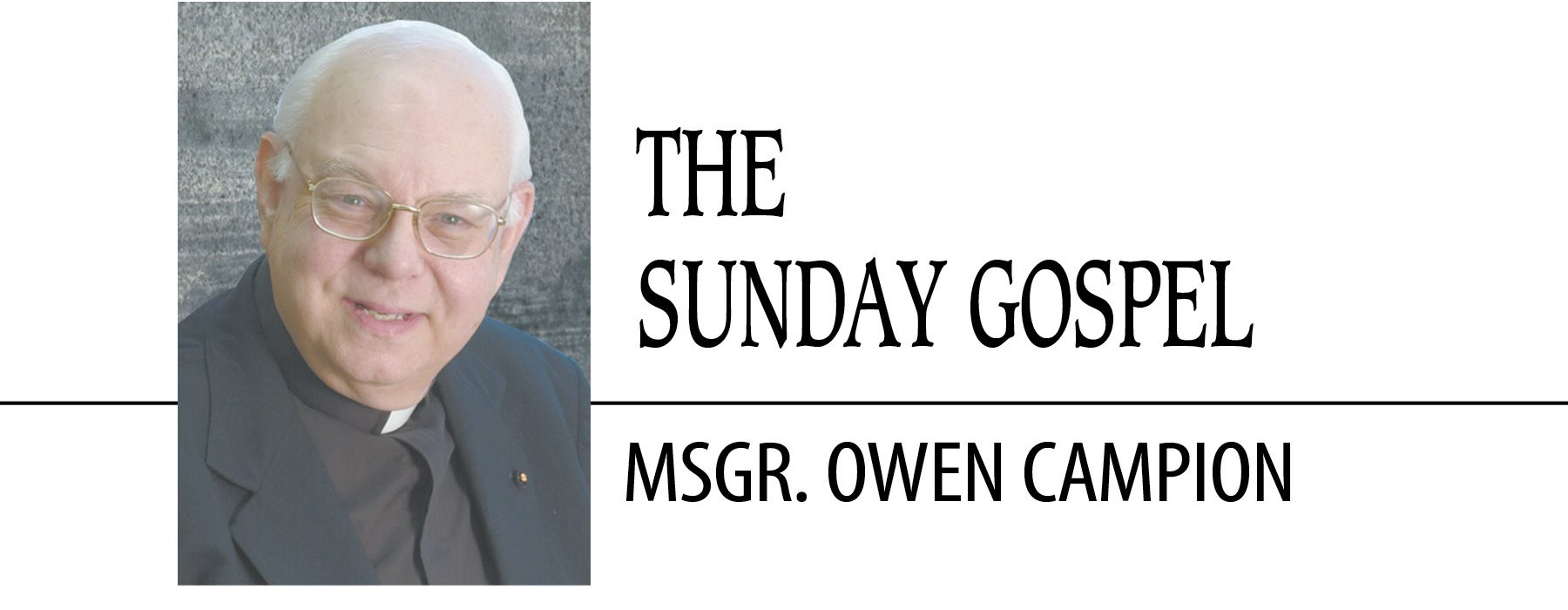November 19, 2022 // Perspective
Christ the King; Christ the Sacrifice
Feast of Christ the King
Luke 23:35-43
The Second Book of Samuel furnishes the first reading for this feast, marking the close of the Church’s year. The two books of Samuel record major events of the reign of King David in Israel.
In this weekend’s reading, David becomes king. He was more than a governmental authority or political figure. His task was to strengthen the union between God and the people, but the people had free will, allowing them to choose their actions.
He was to be a good example and to inspire the people to acknowledge God. Such recognition, David insisted, was the doorway to prosperity, peace, and life.
The second reading acclaims Jesus as the “image of the invisible God”. Jesus is the center of creation. Without Jesus, human life collapses into chaos and worse. Through Jesus, all people possess the hope of eternal salvation, sharing in the benefits of Christ’s sacrifice on Calvary.
St. Luke’s Gospel supplies the last reading. It recounts the trial and execution of Jesus. Noted is the inscription placed above the head of Jesus on the cross that read, “The King of the Jews”. Roman authorities positioned this sign above the Lord’s dying body to warn potential rebels of what rebellion against Rome brought. In fact, it was a proclamation of a profound fact not connected with Roman politics. Christ is king, the Son of God, the Creator.
This title exalts Jesus in the full sweep of salvation history. Jesus was of the Hebrews. He was a Jew. God promised the Jews salvation. Jesus fulfills this promise, bringing salvation to all.
The Gospel mentions the criminals executed beside Jesus. One bitterly blasphemed. The other beautifully professed Jesus as Messiah, proving that human faith, repentance, and trust in divine forgiveness is possible for anyone.
Reflection
When Queen Elizabeth II died, many stories circulated about her. In 1976, she, and her husband, Prince Philip, visited Washington, D.C. to celebrate the 200th anniversary of the United States. They stayed at the White House as guests of President Gerald R. Ford. As the queen was dressing for a banquet, a maid appeared, sent to assist the queen. Smiling, Elizabeth said that she was fine.
Then the maid promised to be there when the queen returned from the banquet. Elizabeth said no. The maid needed her rest. The next morning, the maid arrived at the queen’s room. Elizabeth was already at breakfast. Her bed was made. Bath towels were neatly folded. Her evening gown was hanging in the closet.
Until old age overtook her, Queen Elizabeth II cared for herself, since during the Second World War, her mother never allowed her daughter a maid. Women were needed in the war effort. The future queen herself became an automotive mechanic.
After her death, thousands praised her lifelong personal sacrifices for the country. Serving the good of all, whatever the personal cost, giving whatever is needed, is the ideal of a monarch.
When this feast was established, many monarchies still reigned, but despots were menacing innocent human beings and their rights.
Pius XI created this feast as response to these despots. Christ alone is the answer. As time unfolded, ignoring Christ’s teachings, the despots, Hitler, Mussolini, and others, brought unbelievable horror to humanity.
Christ the king sacrificed all, even life, for us. He is the “way, the truth, and the life.”
The best news. Delivered to your inbox.
Subscribe to our mailing list today.






